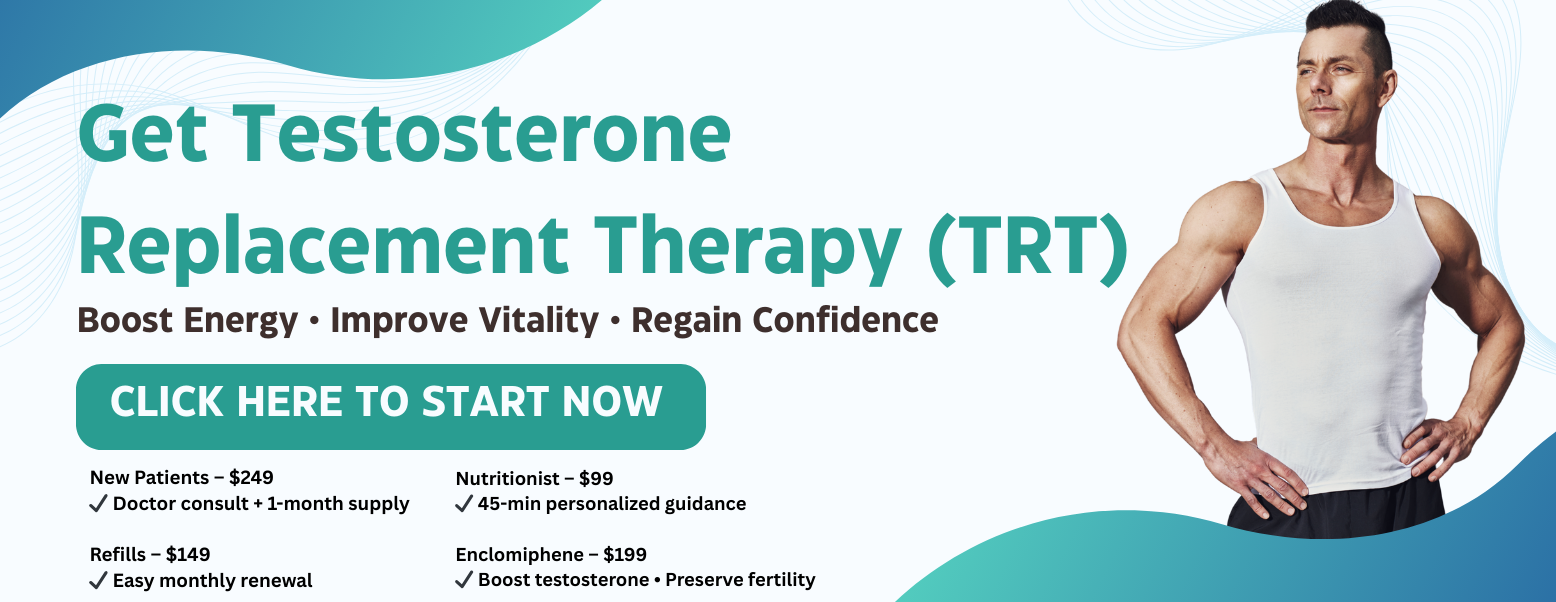Testosterone replacement therapy (TRT) is an increasingly popular solution for men suffering from low testosterone, regaining energy, muscle mass, mood and general well-being. However, the cost of TRT can be a barrier; many patients need to ask themselves. Does UnitedHealthCare (UHC) cover TRT in 2025?
Answers depend on various factors, including medical needs, type of TRT, planning specifications, and previous admissions protocols.
Don’t Wait, Reclaim Your Vitality – Click here to Book Your TRT Consultation Now!
This comprehensive guide will guide you through UHC reporting guidelines, approval requirements, documentation steps, general pitfalls, and strategies to ensure you are covered.
United Healthcare TRT policy for 2025
The United Healthcare TRT policy for 2025 is essential to understand how UnitedHealthcare (one of the largest health insurance companies) sees it before continuing with the
cover.
- Formula Base Cover: UHC maintains a list of eligible medications and treatments, including general testosterone injections and, in some cases, gels or patches, depending on your plan.
- Medical Need: TRT must be prescribed for diagnosed hypogonadism. Performance or anti-aging use is not covered.
- Model Clinical Guidelines: UHC requires providers to follow recognized clinical guidelines for diagnosis and treatment (e.g. Endocrine Society).
- Accreditation and Level Therapy Preparation: Many UHC plans require prior approval before treatment and allow general infusion attempts to be enforced before covering branded products.
Who is eligible for UnitedHealthCare TRT coverage?
UnitedHealthCare (UHC) does not automatically cover each patient's testosterone replacement therapy (TRT). Instead, approval is determined by a mix of clinical reviews, documentation, and medical history.
To increase your chances of approval, it is essential to meet several criteria for laboratory testosterone deficiency, ranging from symptom-related needs. Below, you can find the most important requirements for approval that UHC usually considers when checking TRT coverage.
1. Low testosterone confirmed by the two morning laboratories
UHC must demonstrate a clinical diagnosis of hypogonadism in patients. This includes two separate testosterone tests early in the morning (usually from 7 a.m. to 10 a.m.). Low measurement consistency helps with temporary fluctuations and strengthens the treatment coverage case.
2. The presence of relevant symptoms
The Institutes must have clinically significant symptoms such as fatigue, libido, depression, muscle mass, or erectile dysfunction. These symptoms must be backed by a healthcare expert and observed at low temperatures.
3. Medical necessity over lifestyle use.
UnitedHealthCare covers TRT only when medically necessary, not for lifestyle reasons such as bodybuilding, anti-aging, or improving performance. UHC will likely refuse the claim if the main reason is cosmetic or optional.
4. Prescribed by an experienced physician
TRT needs to be recommended by a certified and expert physician, ideally an expert such as an endocrinologist or urologist.
5. No contraindication or high-risk factors
Patients with certain health risks and untreated prostate cancer, increased PSA level or severe heart disease may be referred for further evaluation. UHC prioritizes security and delays or rejects coverage in such scenarios.
How does UnitedHealthCare determine the medical necessity for TRT?
Coverage with UHC relies on demonstrating that TRT is medically necessary, not selective.
1. Confirmed diagnosis of hypogonadism
UHC requires documented signs of low testosterone, which were confirmed by two morning blood tests showing testosterone levels below ~300 ng/dL. Providers must submit both labs with symptom details.
2. Related Clinical Symptoms
Symptoms such as TRT, fatigue, reduced libido, erectile dysfunction, depression, or muscle weakness should be documented. The UHC evaluates both laboratory outcomes and clinical representations to determine approval of coverage.
3. Endocrinologist or authorised specialist required
TRT prescriptions must come from an in-network, UHC-legal provider—preferably an endocrinologist or certified doctor well-versed with hormone replacement protocols.
4. Require testing: PSA or DRE
Some UHC plans, especially for older men, require the prostate to be checked with a PSA blood test or digital rectal check before TRT is approved for safety reasons.
5. Documented Prior Treatment Plan or Attempted Alternatives
UHCs can consider the history of non-specific therapy (e.g., exercise, vitamin D supplementation) before granting coverage. Still, this requirement for a particular medication is less strict than therapy.
Common Reasons UHC Denies TRT Coverage—and How to Overcome Them
Many patients meet TRT's medical needs, but UnitedHealthCare may continue to reject decisions due to procedural or documentation issues. These rejections can be frustrating, but they are often avoidable. We explore the most common reasons for rejections and options that can be implemented to fix them.
1. Missing or improperly timed labs
Two testosterone levels are required early in the morning to check for low UHC levels. Working in a false era or a single test alone can lead to automatic rejection. Always ensure your work is stamped within hours and in line with morning hormone fluctuations.
2. Non-documentary Symptoms
If your health care provider is unable to thoroughly document symptoms such as fatigue, loss of sexual desire, or mood changes, UHC can consider treatment unnecessary. Please support your case with detailed clinical notes and symptom protocols with providers.
3. Use of non-preferred TRT medication
Reporting TRT products often leads to rejection without first attempting privileged generics to the UHC. Start with testosterone cypionate or enanthate.
4. Failure to follow prior authorisation protocol
Failing to comply with the required prior authorization process or submitting incomplete documents can lead to immediate denials or late approvals. Ensure your healthcare provider submits the correct form and follows up on it regularly with a UHC representative.
5. Out-of-network providers or pharmacies
Getting in touch with healthcare providers or clinics that don’t come within UHC’s network can lead to voiding UHC. It is your responsibility to make sure that your TRT-prescribing physician and the dispensing pharmacy are within the UHC network to avoid claim rejections.
UnitedHealthCare Prior Automation Process (Step-by-Step)
UHC must comply with certain procedural steps if it receives it from a TRT permission.
1. Initiate with Provider-Medical Office Request
Your issuer should post a proper previous authorization request and applicable labs, medical notes, and formularies.
2. Document Clinical Details Thoroughly
Complete documentation is key: time-of-day testosterone tests, symptom logs, and scientific records of fatigue/disorder assisting TRT necessity.
3. UHC Review Timeline
Once submitted, UHC typically takes 7–14 business days to check the request and notify the in-community issuer if approved, denied, or calls for extra information.
4. Handling Clinical Adjudication or Denials
If denied, users can back the coverage with additional documentation or references to areas of expertise. Some plans permit impartial peer review, which may result in opposite decisions.
5. Coverage Renewal Requirements
After approval, TRT insurance typically lasts 6–12 months. Continued insurance calls for up-to-date labs, symptom updates, and proof of issuer follow-up.
Tips to Maximise UHC TRT Approval Chances
Compliance and exact documentation are key fulfillment elements while running with UHC.
1. Coordinate via a TRT-knowledgeable provider
Specialized clinics like The KIF have a massive advantage in managing insurers and might pre-populate the authorization bureaucracy correctly.
2. Ensure Proper Lab Timing and Documentation
All labs must be conducted within a specific time frame (e.g., 7–9 a.m.) and method. Typing lab outcomes with a T degree and everyday tiers helps avoid mistakes.
3. Request the Lowest-Cost Covered Medication First
UHC prefers cheaper generics like testosterone cypionate. Brand-call bureaucracy has to be asked if medically necessary.
4. Maintain Consistent Follow-Up Visits
In-community issuer workplace visits, every 3–6 months, assist in meeting UHC documentation requirements for continued insurance.
5. Understand Your Plan's Specific Formulary Rules
Check your UHC Evidence of Coverage (EOC) or pharmacy formulary regularly; avoid medicinal drugs that are no longer covered by your plan.
TRT Cost Without UHC Coverage—and Affordable Options
If you're denied TRT insurance via UHC or don't have insurance, don't worry. There are numerous methods to get admission to low-cost testosterone therapy without breaking the bank. Here are the first-rate options for out-of-pocket TRT management.
1. Generic TRT Injections from Compounding Pharmacies
Generic testosterone cypionate or enanthate injections cost substantially less via respectable compounding pharmacies, frequently as low as $30–$60 per month without insurance.
2. Monthly Self-Pay TRT Plans from Clinics Like The KIF
Specialized TRT clinics, together with The KIF, provide all-inclusive self-pay plans, which cover health practitioner visits, lab testing, and medicine for a set monthly fee—normally between $129 and $179/month.
3. Pharmacy Discount Program
Drug department websites can help reduce the price of testosterone products, including injection abilities and gels, even without insurance.
4. Manufacturer Copay Savings cards
Some TRT manufacturers offer Copay cards or discounts that reduce costs for people without insurance or whose insurance refuses coverage.
5. Community Health Clinics and Hormones Research Trials
Searching for community clinics that offer clinical research where hormone therapy or new TRT products are tested can provide free or inexpensive access to treatment.
Conclusion
UnitedHealthCare can cover TRT in 2025 only if it meets strict medical, procedural and written standards. It is essential to select a corresponding approved provider, submit timely laboratory results according to clinical guidelines, and adhere to previous authorization protocols.
With TRT experts like KIF, navigating through these steps, UHC approval, and ongoing care is smoother. If you have to struggle with low testosterone or consider TRT, don't disrupt your insurance. Book free advice with KIF today, take out hormone therapy and allow yourself to focus on your health and vitality at an affordable price.
Our pricing is so affordable that you do not have to cross extra mile to get the coverage to afford the TRT.
 Since 2021, Kif offers a streamlined platform to get a medical marijuana card online. We have served more than 45K patients across the United States. Sign Up Now to get the right to use medical cannabis for your health condition without any delay.
Since 2021, Kif offers a streamlined platform to get a medical marijuana card online. We have served more than 45K patients across the United States. Sign Up Now to get the right to use medical cannabis for your health condition without any delay.
























